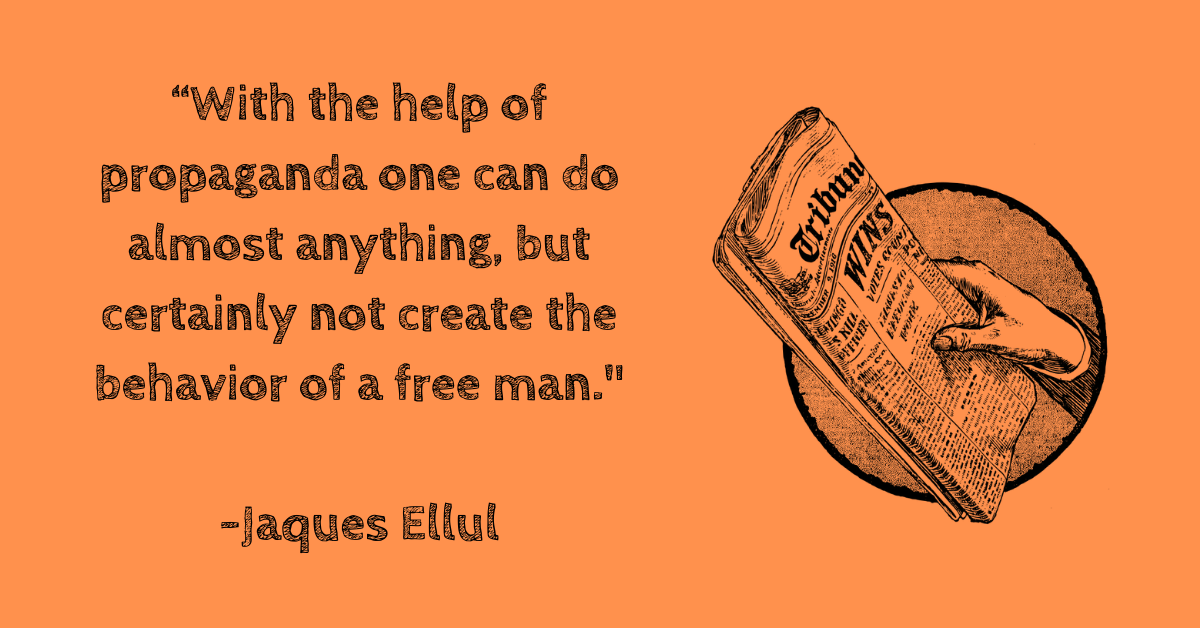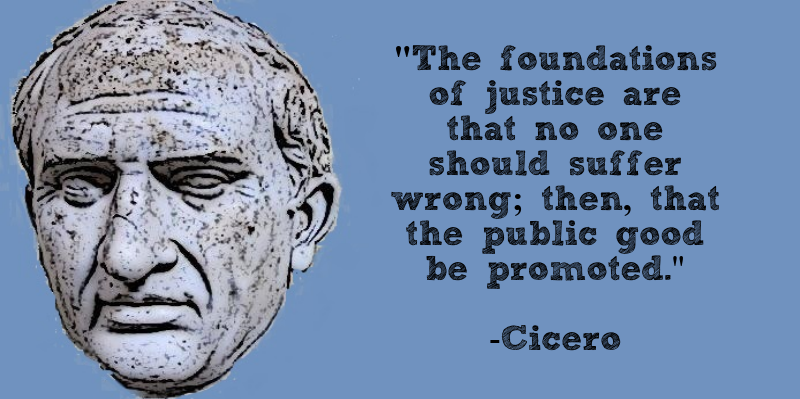In his book Propaganda: The Formation of Men's Attitudes, Ellul diverges from previous scholarship in that he considers propaganda to be a sociological phenomenon, one in fact that we cannot live without in modern technological society. Propaganda exists to adjust a normal person to an ever-changing social and technological environment which is profoundly abnormal given the vast majority of our evolutionary history. A modern individual must endure psychological alienation, dissolution of ancestral groups, enormous taxes, brutal wars, inescapable working life. Propaganda both integrates us into this milieu, and acts as an intermediary between us and the state.
Modern propaganda may be socially necessary, but it is not harmless. It exists everywhere, even in democracies, and its effects make us totalitarian in our mindset. We are easy victims because we lack the proper framework necessary to identify it, and because we underestimate its power. In Ellul’s words, "Propaganda is a direct attack against man. The question is to determine how great is the danger."[1]
This post aims to condense and demystify Ellul's analysis, and to build on it by suggesting concrete ways in which we can avoid propaganda's detrimental effects.











